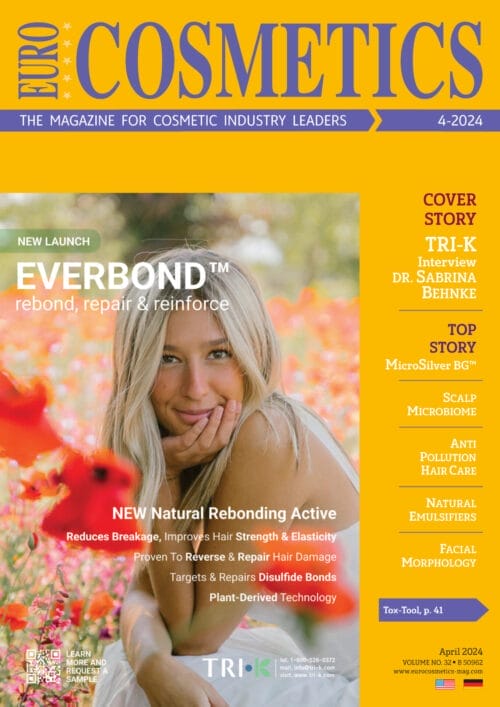 Angel Consulting SAS
Angel Consulting SAS 
Introduction: the MoCRA act and the role of a qualified US Agent
As the global cosmetics industry continues to expand, many EU cosmetic companies are looking to capitalize on the opportunities presented by the United States market. However, entering this market comes with its own set of challenges, particularly in terms of regulatory compliance and crisis management.
The Modernization of Cosmetics Regulation Act (MoCRA) has introduced new requirements for companies operating in the US, making it more important than ever for EU companies to have a well-defined crisis management plan in place. This is where the role of a US Agent becomes crucial.
A qualified US Agent brings a wealth of knowledge and experience to the table, helping EU cosmetic companies navigate the complexities of the US regulatory landscape. They can provide invaluable guidance in developing a comprehensive crisis management plan that is tailored to the company’s specific needs and products. The US Agent ensures that the plan aligns with the requirements set forth by the MoCRA Act, including timelines for reporting serious adverse events and protocols for product recalls.
The adverse event, in the worst case of a crisis
In the event of a crisis, the US Agent serves as the primary point of contact for the FDA and other relevant stakeholders. Their expertise in communication strategies can help the company draft clear and concise messages, such as press releases and customer notifications, to mitigate potential damage to the company’s reputation. The US Agent can also coordinate with the EU company’s internal teams, such as legal, quality assurance, and public relations, to ensure the smooth implementation of the crisis management plan. Furthermore, they can provide guidance on engaging with external partners, such as distributors and retailers, during a crisis.
To ensure that all relevant personnel are familiar with the crisis management plan and their respective roles and responsibilities, the US Agent can facilitate training sessions and crisis simulation exercises. These activities help to identify potential gaps in the plan and allow for necessary refinements to be made before a real crisis occurs.
While having a US Agent is essential, EU cosmetic companies must also take proactive steps to organize their own procedures for managing adverse events and crises. This begins with implementing a robust system for collecting, assessing, and reporting adverse events associated with the company’s cosmetic products. It is crucial to ensure that all serious adverse events are reported to the FDA within the 15-day timeframe specified by the MoCRA Act.
Preventive actions: the plan
Conducting thorough risk assessments is another key aspect of effective crisis management. By identifying potential crisis scenarios and their potential impact on the company, EU cosmetic companies can prioritize resources and develop targeted response strategies. This proactive approach helps to minimize the negative consequences of a crisis and allows the company to respond more efficiently.
Developing clear and concise Standard Operating Procedures (SOPs) is also essential for managing adverse events and crises. These SOPs should outline the steps to be taken in the event of a crisis, including roles and responsibilities, communication protocols, and timelines for action. By having well-defined procedures in place, EU cosmetic companies can ensure a more coordinated and effective response to any potential challenges.
Traceability and record-keeping play a vital role in crisis management. EU cosmetic companies should maintain accurate and up-to-date records of product batches, distribution channels, and customer complaints. This information will be crucial in the event of a product recall or investigation, allowing the company to quickly identify affected products and take necessary actions to mitigate further harm.
Engaging with key stakeholders, such as suppliers, distributors, and industry associations, is another important aspect of crisis management. Regular communication with these stakeholders helps to ensure alignment and cooperation during a crisis. EU cosmetic companies should strive to build strong relationships with their stakeholders, as these connections can provide valuable support and resources in times of need.
Finally, continuous improvement is a hallmark of effective crisis management. EU cosmetic companies should regularly review and update their crisis management plans based on industry best practices, regulatory changes, and lessons learned from previous incidents. Conducting periodic audits and assessments can help identify areas for improvement and ensure that the company remains prepared for any potential challenges.
The crisis management from the sight of the EU companies
EU cosmetic companies can ensure that their crisis management plans are regularly updated and improved by implementing a systematic approach to review and assessment. This process should involve a combination of internal audits, stakeholder feedback, and industry benchmarking.
One key aspect of maintaining an up-to-date crisis management plan is to conduct regular internal audits. These audits should be designed to evaluate the effectiveness of the plan, identify any gaps or weaknesses, and propose improvements. The audit team should consist of representatives from various departments, such as quality assurance, regulatory affairs, and operations, to ensure a comprehensive review. The frequency of these audits may vary depending on the company’s size and complexity, but an annual review is generally recommended.
Incorporating stakeholder feedback is another crucial element in improving crisis management plans. EU cosmetic companies should actively seek input from their US Agent, suppliers, distributors, and customers. This feedback can provide valuable insights into potential risks, challenges, and opportunities for improvement. Companies can gather this feedback through surveys, focus groups, or regular communication channels. By actively listening to and addressing stakeholder concerns, companies can strengthen their crisis management plans and build trust with their partners.
Monitoring industry best practices and benchmarking against peers is also essential for ensuring that crisis management plans remain relevant and effective. EU cosmetic companies should stay informed about the latest developments in crisis management strategies, regulatory requirements, and consumer expectations. Attending industry conferences, participating in trade associations, and engaging with professional networks can help companies stay up-to-date with the latest trends and innovations. By comparing their crisis management plans to those of their peers, companies can identify areas where they may be lagging behind and take steps to close any gaps.
In addition to regular audits and assessments, EU cosmetic companies should also review their crisis management plans following any actual crisis or near-miss event. This post-crisis evaluation should involve a thorough analysis of the company’s response, including what worked well, what could be improved, and any lessons learned. The findings from this evaluation should be used to update and refine the crisis management plan, ensuring that the company is better prepared for future challenges.
Training and education
Training and education also play a critical role in maintaining an effective crisis management plan. EU cosmetic companies should provide regular training to all employees involved in crisis management, ensuring that they are familiar with their roles and responsibilities. This training should cover topics such as crisis communication, decision-making under pressure, and coordination with external stakeholders. By investing in the skills and knowledge of their employees, companies can build a strong foundation for effective crisis management.
Finally, EU cosmetic companies should view crisis management planning as an ongoing process rather than a one-time event. As the business environment evolves and new risks emerge, companies must be prepared to adapt their plans accordingly. This requires a commitment to continuous improvement, a willingness to learn from experience, and a proactive approach to risk management.
Conclusions
In conclusion, the role of a US Agent in crisis management cannot be overstated for EU cosmetic companies exporting to the United States. By partnering with a knowledgeable US Agent and implementing robust procedures for managing adverse events and crises, companies can navigate the complexities of the US regulatory landscape with confidence. A well-structured crisis management plan, combined with the expertise of a US Agent, enables EU companies to respond quickly and effectively to potential challenges, minimize negative impacts, and maintain the trust of consumers and regulators alike.
However, simply having a crisis management plan in place is not enough. EU cosmetic companies must also commit to regularly updating and improving their plans to ensure they remain relevant and effective in the face of evolving risks and challenges. This requires a systematic approach to review and assessment, involving internal audits, stakeholder feedback, and industry benchmarking. By conducting regular audits, seeking input from partners and customers, and staying informed about industry best practices, companies can identify areas for improvement and take steps to strengthen their crisis management capabilities.
Furthermore, investing in the skills and knowledge of employees through ongoing training and education is critical for maintaining an effective crisis management plan. By ensuring that all relevant personnel are familiar with their roles and responsibilities and equipped with the necessary skills to respond to a crisis, EU cosmetic companies can build a strong foundation for success.
Ultimately, the key to effective crisis management lies in viewing it as an ongoing process rather than a one-time event. By prioritizing crisis preparedness, continuous improvement, and collaboration with a trusted US Agent, EU cosmetic companies can position themselves for long-term success in the dynamic and competitive US market. With a proactive approach to risk management and a commitment to maintaining the highest standards of safety and quality, EU companies can build resilience, protect their reputation, and thrive in the face of any challenge that may arise.



